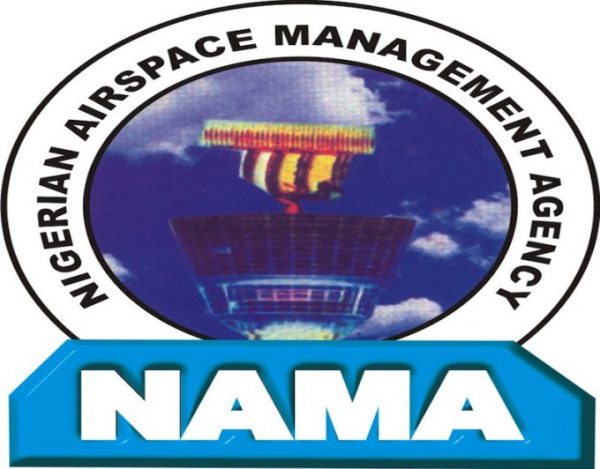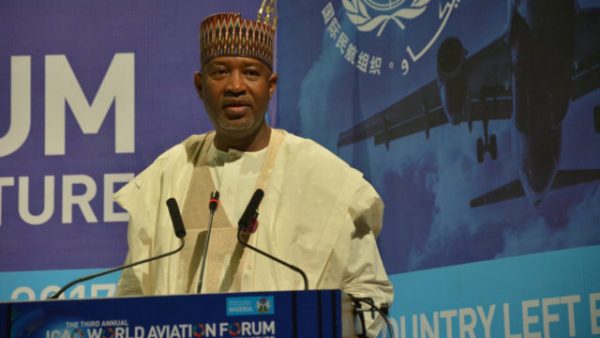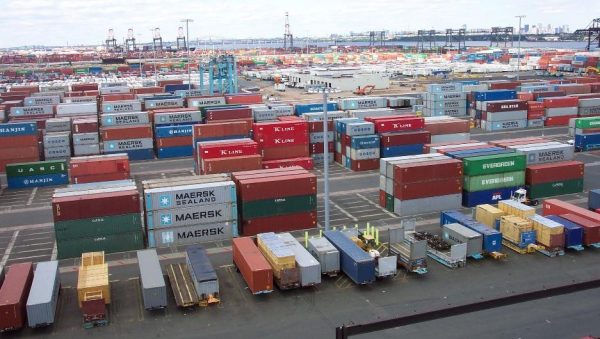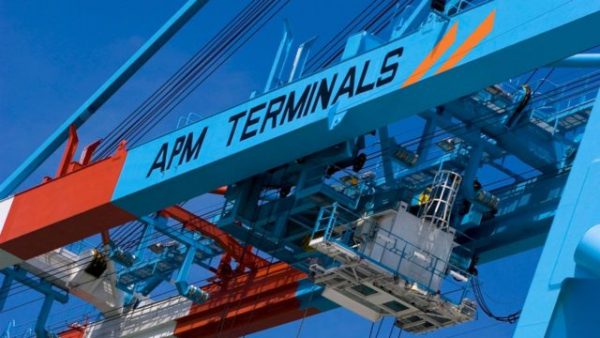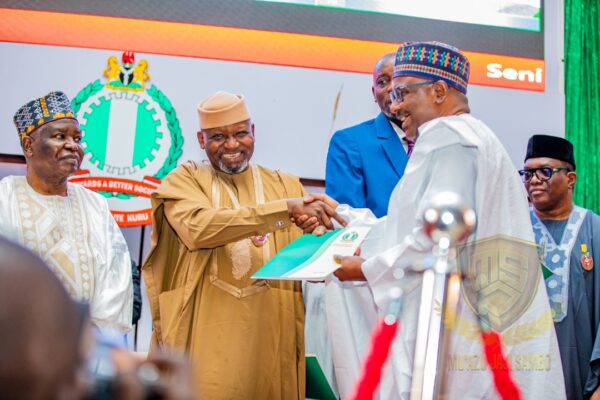GOOD Corruption: How CRFFN Spent N3.9billion 2017 Budget
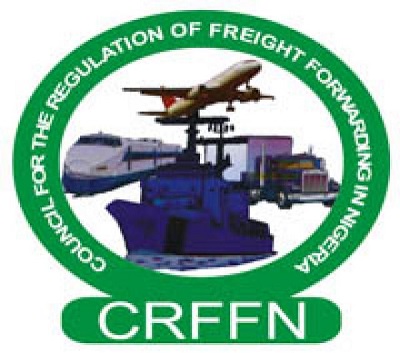
*N1bn spent on Phantom IFFN building project
Following the litany of allegations of disbursement of funds without due process in recent times, maritime stakeholders have called for a comprehensive probe into the activities of CRFFN since inception in 2007, saying that the two past chairmen of the Council should account for their stewardship, while the Registrar and the officials of the Federal Ministry of Transportation should account for the management of the Council for eight years without a governing board.
Hon. Tony Iju Nwabunike was the pioneer chairman and was succeeded by Aare Hakeem Olanrewaju, who has remained the last chairman as the Council has been under the leadership of the Registrar and Chief Executive Officer, Sir Mike Jukwe but disbursement of funds are not done by him without the approval of the Minister of Transportation.
Recall that the re-branding of the institute has been ongoing since 2013, to enable IFFN reflect its commitment to the sea of change in freight forwarding in the country but no significant infrastructural development can be seen at the institute’s alleged plots of land in Abuja where N1billion was allegedly expended without adhering to due process in disbursing the colossal sum.
Similarly, our source also alleged that CRFFN used the sum of N850,000,000 for the purchase of security equipment, leaving observers worried as to the reasons the Council needed such security infrastructure.
When contacted to clarify these allegations, the CRFFN Registrar, Mr. Mike Jukwe pleaded with MMS Plus to grant him one week to create time to provide the breakdown of the Council’s expenditure in 2017.
Two weeks has passed and the CRFFN boss has neither called nor sent any message to clarify these issues. He has also ignored calls and text messages from our correspondent on this matter.
Meanwhile, the Public Relations Officer at the Council, Mrs. Chinyere Uromta said the allegations weren’t the facts about the Council’s expenditure in 2017.
Uromta alleged that the informant was only trying to ridicule the agency and the Registrar.
“I don’t think there is any need to be asking questions on CRFFN 2017 budget. This allegation is false and I don’t think it deserves the media attention” the Council’s PRO said.
In his reaction, the National President of IFFN, Dr. Zebullion Ikokide accused the CRFFN Registrar of being dubious and not involving IFFN executives in his actions.
“These approvals are all lies. They are the handwork of the Registrar. The Registrar did things without involving people. I recall when I heard that money was appropriated and later approved for IFFN but he didn’t let us know”
“He didn’t let me know how much was approved for the institute and he didn’t give the institute one kobo. So, my position is that the ongoing investigations should be carried out comprehensively and the culprits be brought to book”, Ikokide said.
Speaking recently with MMS Plus, the Founder of the National Association of Government Approved Freight Forwarders (NAGAFF), Dr. Boniface Aniebonam, called for a comprehensive audit of the CRFFN accounts from inception to ascertain the true status of the account, especially when a new governing council is expected to assume office after the elections.
Also, a member of the Board of Trustees (BOT) of the Association of Nigerian Licensed Customs Agents (ANLCA), who preferred anonymity emphasized the importance of audit to ascertain the nature of the assets and liabilities to be handed over to the new leadership of the governing board.
It was also gathered that the Council is still indebted to its workforce, especially the directors, who have alleged that they have not been paid for months.
In the penultimate week, the House of Representatives unveiled plans to investigate over N2.5 billion alleged fraud perpetrated in CRFFN in breach of the provisions of Fiscal Responsibility Act.
Earlier, the House mandated the Committee on Ports, Harbours and Waterways chaired by Patrick Asadu (PDP-Enugu) to commence investigation into serial allegations of financial impropriety against the registrar.
Speaking to journalists in Abuja, Prestige Ossy (Abia-APGA), who sponsored the motion, said the motion was prompted by the mind boggling allegations against the Registrar.
Explaining why the House mandated the committee to investigate CRFFN, Prestige said allegations against the Registrar were mind boggling.
According Ossy, who is a member of the committee on customs and excise, “5% of the sum of N836,458,385.28 which was approved for the construction of 61 outpost offices was paid to the beneficiary companies as VAT instead of Federal Inland Revenue Service (FIRS).
He said: “33 contracts were awarded under the guise of construction/provision of buildings’ at the sum of N418,113,198.56 without due process and to some cities that have no relevance to port or border operations, and 5% of this sum was paid as VAT to the beneficiary companies.”
“The House is aware of the fact that apart from the aforementioned financial infractions, the registrar/chief execution officer of the CRFFN was also alleged to be involved in several other financial scandals which include unilateral approval of an undisclosed sum for the purchase of two Toyota Land Cruisers and 50 Toyota Hilux vans but purchased only one Land cruiser and ten Hilux vans, and diverted the rest of the funds. The registrar diverted the sum of N35 million meant for the opening of Micro Finance Bank for Freight Forwarders, rented his own personal house as office of CRFFN in Abuja for an undisclosed sum.”
He expressed worry that the way and manner these sums were expended shows financial recklessness and manifestation of incompetence on the part of the registrar.
Speaking further, Prestige alleged that the registrar clandestinely recruited over 100 staff without due process, and promoted some unqualified staff as directors and unilaterally sacked or suspended some and recruited additional 21 other staff without due process.
He noted that the sum of N3,942,709,857 was approved for both capital and recurrent expenditures for CRFFN in the 2017 Appropriation Act 2017; a breakdown of this sum shows that the sum of N3.650 billion was for capital expenditure, while the sum of N292,709,857 was for recurrent expenditure.
“The House also notes that in the same financial year, CRFFN generated the sum of N14,124,888.77 out of the projected Internally Generated Revenue of N5,042,348,663; which clearly shows poor performance by any standards,” he stated.
·Nigeria set for GDP growth as FG introduces Disbursement Accounts
The Federal Government of Nigeria is set to introduce Disbursement Accounts (DA) in shipping as part of efforts to correct the poor reflection of maritime services in the growth of the nation’s Gross Domestic Product (GDP).
The introduction of DA has also been tipped to curb the menace of foreign exchange (forex) round tripping in the country, thereby stabilizing the nation’s forex market.
Nigerian Shippers’ Council (NSC) in collaboration with the Central Bank of Nigeria (CBN) organized a stakeholder’s meeting last week, where shipping agents, freight forwarders, ship chandlers, shipping lines and other stakeholders in the nation’s shipping sector, agreed that the utilization of Disbursement Accounts should be included in CBN’s new Forex Manual.
Disbursement accounts are specific accounts opened by the Principal (ship owner or charterer) for the purpose of sending funds required to settle charges incurred by the vessel locally. These charges are usually in foreign exchange because it is assumed that the principal must have transferred the funds to the disbursement account of the agent in foreign exchange.
Speaking to MMS Plus at the event, the consultant to Shippers’ Council, Mrs. Dabney Shall-Holma, explained that “Disbursement Account simply signifies an inflow of funds into a system. For most nations involved in international trade, DA is a live-wire. As soon as it flows into the economy, it boosts the Gross Domestic Product (GDP) of the nation. It is responsible for low income countries between 35% -45% and for medium income economies like Nigeria; it is responsible for about 65%”
“However, there are some small countries with low income that are enjoying the fiscal benefits of DA much more such as Togo where 70% -75% of the nation’s GDP is shipping contribution because of the number of vessels they are receiving. Although, most of the vessels that berth in Lome are destined to Nigeria but Togo end up enjoying the earnings from the ships.
She said the main idea of DA was to generate revenue from the ships so that the nation could have more money in the financial system and de-pressurize the forex market.
“The forex market in Nigeria is under tremendous pressure and that explains the problems we have with forex in the nation. The moment we start having these inflows it will be registered that the shipping sector is contributing to the GDP growth of Nigeria and it would show in the forex trading system” Shall-Holma noted.
The Deputy Director, Foreign Exchange Management, Trade & Exchange Department, CBN, Mr. Saleh Jibrin said the idea of the meeting with the stakeholders was to ensure that the introduction of disbursement accounts enjoys the support of those in the shipping industry.
Jibrin explained that CBN was keen on listening to the views and possible challenges of stakeholders on the utilization of disbursement accounts, adding that the apex bank was interested in developing policies that will grow the shipping industry and the nation’s economy.
Jibrin revealed that he was happy about the consensus opinion expressed at the meeting that the disbursement account should be introduced, noting that the decision on the policy couldn’t have been taken without hearing from those in the industry.
In his opening remarks, the Executive Secretary, NSC, Mr. Hassan Bello explained that maintenance of a Disbursement Account as provided by ‘UNCTAD Minimum Standards for Shipping Agents’ stops the agent from going to the local market to source foreign exchange to settle charges incurred by the vessel locally.
Bello who was represented by the Director, Legal Service of the Council, Mr. Samuel Vongtao, identified such charges to be covered by the Disbursement Accounts as those collected by the Nigerian Ports Authority (NPA); Nigerian Maritime Safety and Administration Agency (NIMASA); ship chandelling costs and other local shipping costs.
On his part, the President of the Association of Nigeria Licensed Customs Agents (ANLCA) Mr. Tony Iju Nwabunike, welcomed the initiative even as he opined that CBN carryout proper survey to discover the reasons why the policy didn’t thrive when it was first introduced in 2006.
Nwabunike saw the development as part of the Federal Government’s commendable efforts to enhance the ease of doing business at the nation’s ports.
Meanwhile, the President of Nigerian Licensed Ship-Chandlers Association, Dr. Martins Enebeli sought the intervention of CBN and Shippers’ Council in eliminating the forex challenges facing ship-chandlers in the country.
Dr. Martins lamented that indigenous ship-chandlers were usually paid in naira rather than dollar, a practice that left chandlers with the challenge of sourcing forex from the open market in order to pay their duties to NPA.
Reacting to Dr. Martins plea, Mrs. Shall-Holma said; “Some of these chandlers are involved in the business as chain-brokers. When you are involved as a broker; the responsibility of one broker when transferring it to another, also incudes transferring forex. However, some brokers wouldn’t transfer forex. They would rather go to the black market, exchange the forex into naira and pay the third-party broker in naira”
“So, the third-party ends up struggling to do the chandling or pay the agency charges in foreign currency. The essence of this meeting is to look at all these difficulties and see how we can address them to make sure it doesn’t occur anymore. We want to ensure that anybody who is serving as a shipping agent has the responsibility that is required by the minimum standards set by United Nations Conference on Trade and Development (UNCTAD) in the guidelines” she added.


